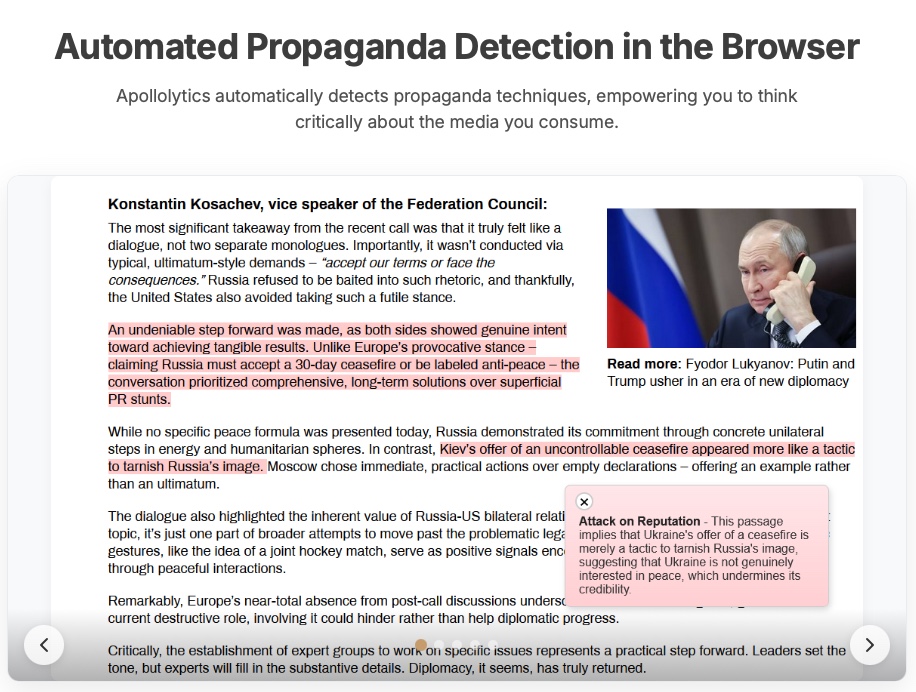Project state
closed
Project start
March 2024
Funding duration
12 months
Universities involved
UZH
Practice partners
Funding amount DIZH
CHF 74'900
The project aimed to combat propaganda and disinformation in digital media through the development of AI-assisted tools for detection and analysis. Over multiple development phases, the team created and tested a browser extension that helps users identify propaganda techniques and understand their context. The research combined advances in Large Language Models (LLMs) with user-centered design to create a practical tool that enhances critical thinking.
More information and download of the browser extension:
Result
- Development of Apollolytics, a novel browser extension that detects propaganda techniques in online news using LLMs. The tool also provides explanations of why a certain text chunk is propagandistic.
- Creation of a contextualization system that helps users to better evaluate news content by providing relevant information and sources for the detected propagandistic content. This supports users in developing their own critical understanding of the broader context.
- Empirical validation through user experiments that demonstrated increased critical thinking in news evaluation by readers. The research showed that users with access to the tool were better able to identify and understand propaganda.
- Publication of findings at CHI 2025 (Hoferer, et. al. (2025). Effective Yet Ephemeral Propaganda Defense: There Needs to Be More than One-Shot Inoculation to Enhance Critical Thinking) and full paper at ECIS 2025 (Zavolokina, et.al. (2025). Biased by Design: Leveraging AI Biases to Enhance Critical Thinking of News Readers).
Media coverage
DSI Insights column by Kilian Sprenkamp: “Wie die KI-Technologie Flüchtenden hilft und Propaganda erkennt”
Workshop
Public workshop at DSI “Detecting propaganda: Can AI make us better news readers?” (11.04.25)
Team:
Dr. Liudmila Zavolokina, UZH Digital Society Initiative
Prof. Dr. Alexandre Bovet, UZH Institute of Mathematics
